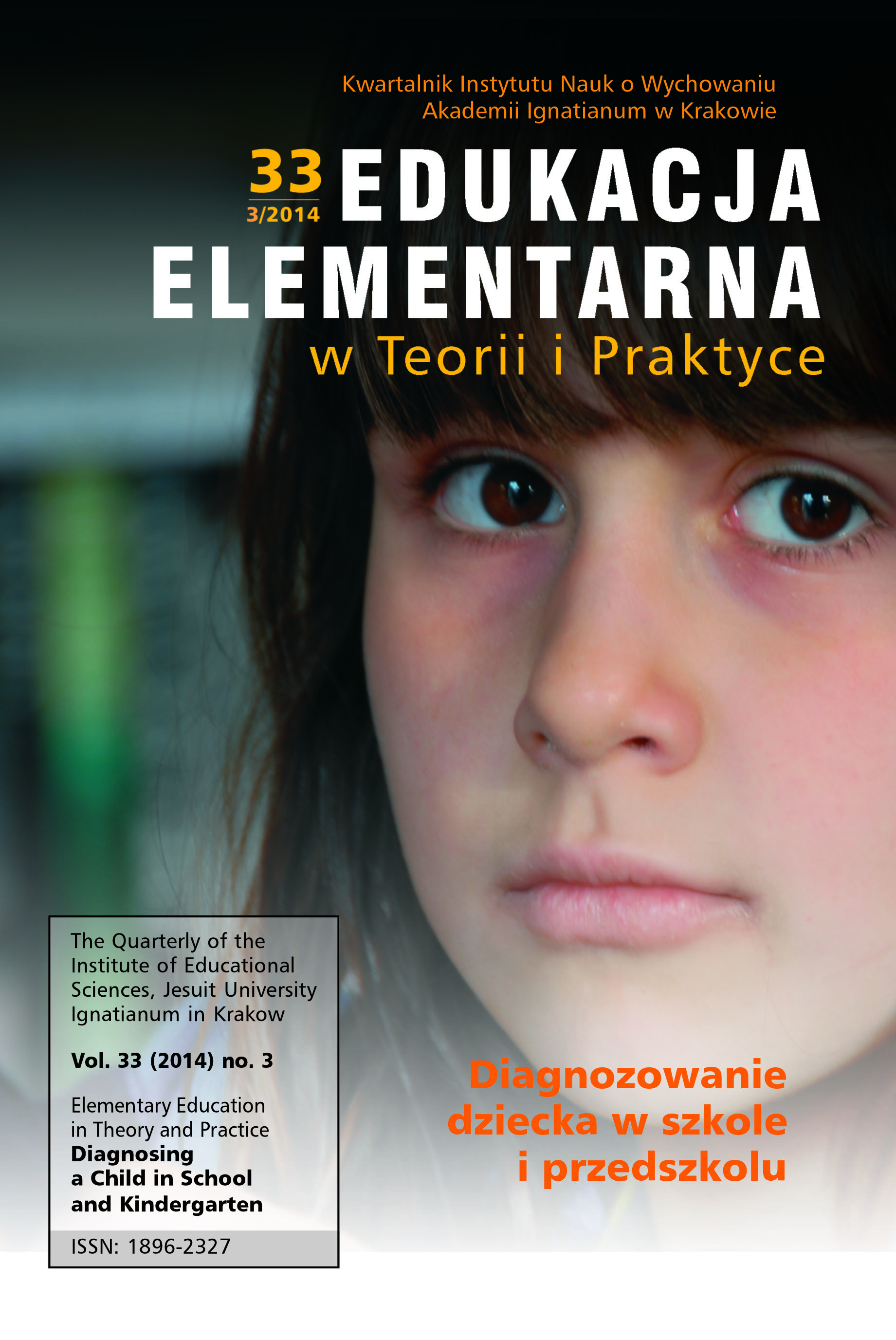Umiejętności społeczne dziecka obiektem diagnozy przedszkolnej
The Social Skills of Children as an Object of Preschool Diagnosis
Author(s): Jolanta SajderaSubject(s): Social Sciences, Education
Published by: Uniwersytet Ignatianum w Krakowie
Keywords: preschool diagnosis; social skills; shared intentionality
Summary/Abstract: The field of preschool social education may be analyzed from a variety of perspectives, all of which offer deep insights into children’s experiences. The acquisition of social skills is a lifelong process that relies on one’s social initiative in interacting with others. Since quantitative methods fail to produce satisfactory results, those researchers who diagnose social skills in children must have reliable knowledge concerning the latter’s development, and be willing to develop interpretations of the behaviour of children in particular social situations. This paper sets out to consider whether preschool teachers are capable of diagnosing social skills in children as part of the „preschool diagnostic assessment” recommended by the Polish Ministry of National Education in its Common Core for Preschool Educators. It is pointed out that the document is vague in its description of how to define the aims of social education. Some theoretical premises are presented, with the aim of furnishing criteria for diagnosing social skills in preschool children – criteria somewhat broader than those recommended in the Common Core. Several concepts are proposed in order to help explain the phenomenon of „children’s community formation”, where this is achieved through learning collaborative skills or in response to the need to create forms of shared intentionality when interacting with others (Bruner, Schaffer, Tomasello). The process of gathering knowledge about children’s social skills requires that teachers select suitable methods for identifying the position of particular children in the children’s community, where the latter is different from the community of adults and so follows its own quite distinct rules. The paper also makes suggestions for teachers about how to work to identify and interpret children’s relationships with their peers in naturally occurring situations, such as during spontaneous games, peer tutoring, or peer collaboration, and in prearranged educational situations such as group learning through collaboration.
Journal: Edukacja Elementarna w Teorii i Praktyce
- Issue Year: 9/2014
- Issue No: 3 (33)
- Page Range: 49-66
- Page Count: 18
- Language: Polish

